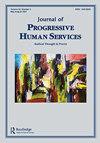加拿大多元文化主义中的群体内偏见与群体间对话
IF 0.8
Q1 SOCIAL WORK
引用次数: 0
摘要
摘要非裔加拿大人在加拿大继续承受着边缘化和陈规定型观念的冲击,即使联邦、州和市政府已经启动了各种缓解研究和项目。在非正规环境和国家机构中,当他们寻求就业、住房或在街头、商场、学校等时,这些刻板印象继续影响着他们。虽然社会正义倡导者、社会工作者和政策制定者关注“黑人-白人”的动态,因为其他“种族化少数群体”在加拿大也被边缘化(尽管不平等),值得注意的是,“非白人”加拿大人也助长了加拿大多元文化中对非裔加拿大人的历史刻板印象的传播,正如多伦多市对“反黑人种族主义”的缓解策略所强调的那样,本文认为,质疑“黑白”二元主义之外的社会群体偏见,以鼓励群体间对话,对于确保不同的多元文化社区通过有利的、以活动为中介的群体间关系相互理解,而不是由第三方调解或根本不调解的多元文化关系,具有重要意义。我们还认为,非裔加拿大人应该专注于内部优势,只利用外部帮助来加强社区倡议,以改变现有的负面形象。本文章由计算机程序翻译,如有差异,请以英文原文为准。
In-Group Bias and Inter-Group Dialogue in Canadian Multiculturalism
ABSTRACT African-Canadians continue to bear the brunt of marginality and stereotyping in Canada even when various mitigating studies and programs have been initiated by the government at federal, state, and municipal levels. These stereotypes continue to affect them in informal settings and state institutions when seeking employment, housing or when in the streets, malls, schools, etc. While social justice advocates, social workers, and policy-makers focus on “Black-White” dynamics because other “racialized minorities” are also marginalized (though not equally) in Canada, it is important to note that “non-White” Canadians also contribute to the spread of historical stereotypes of African-Canadians within Canadian multiculturalism as noted in the emphasis of the city of Toronto’s mitigating strategies for “anti-Black racism.” Using social group position theory (SGPT) and asset-based model (ABCD), this paper argues that interrogating social group biases beyond “Black-White” binarism to encourage inter-group dialogs is important in making sure that different multicultural communities understand one another through favorable, activities-mediated, inter-group relations as opposed to having multicultural relations mediated by third parties, or not mediated at all. We also argue that African-Canadians should focus on internal strengths and only use external help to augment community initiatives to change the extant negative image.
求助全文
通过发布文献求助,成功后即可免费获取论文全文。
去求助
来源期刊

Journal of Progressive Human Services
SOCIAL WORK-
CiteScore
3.20
自引率
8.30%
发文量
14
期刊介绍:
The only journal of its kind in the United States, the Journal of Progressive Human Services covers political, social, personal, and professional problems in human services from a progressive perspective. The journal stimulates debate about major social issues and contributes to the development of the analytical tools needed for building a caring society based on equality and justice. The journal"s contributors examine oppressed and vulnerable groups, struggles by workers and clients on the job and in the community, dilemmas of practice in conservative contexts, and strategies for ending racism, sexism, ageism, heterosexism, and discrimination of persons who are disabled and psychologically distressed.
 求助内容:
求助内容: 应助结果提醒方式:
应助结果提醒方式:


